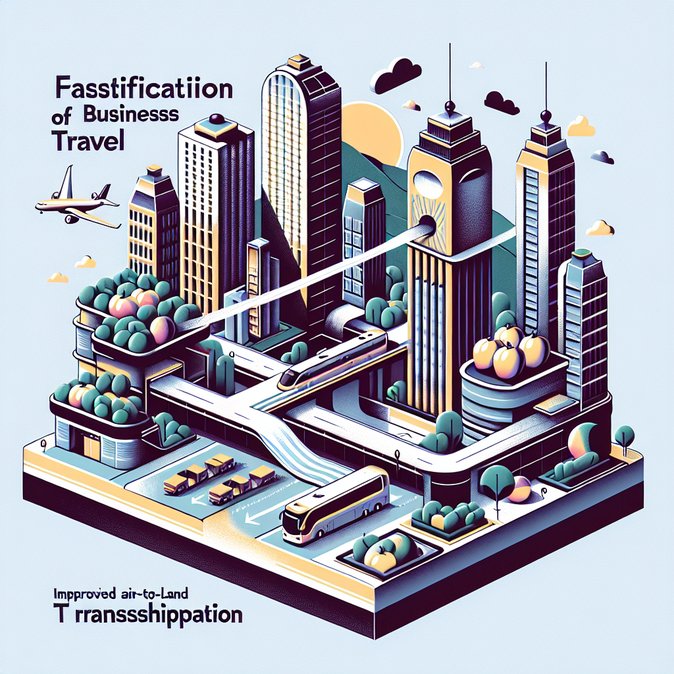
Hong Kong has taken another step toward friction-free trade and faster cross-boundary logistics. At a high-level meeting in Hong Kong on 18 November, Commissioner of Customs and Excise Chan Tsz-tat and Zhao Zenglian, Vice-Minister of China’s General Administration of Customs (GACC), witnessed the signing of a Memorandum of Cooperation that specifically targets the inspection and quarantine of fresh fruit shipped by air to Hong Kong and forwarded overland to the Chinese mainland.
Why it matters for mobility: The air-to-land “green lane” is designed to slash clearance times for perishable cargo transiting the Hong Kong International Airport and heading north via the land boundary control points and the Hong Kong-Zhuhai-Macao Bridge. Speedier customs processing should, in turn, improve flight-to-shelf timelines for supermarket chains and food-service companies that rely on Hong Kong as a consolidation hub. For corporate mobility teams, the agreement reduces the risk of delays that often force last-minute itinerary changes for accompanying technicians, quality-control staff and cold-chain specialists who need to escort temperature-sensitive consignments.
![Hong Kong and Mainland Customs sign fresh-produce transshipment pact at high-level meeting]()
Background: Hong Kong already handles roughly 70 per cent of all imported fruit flown into Greater Bay Area cities. Until now, every pallet had to undergo repeat documentary and physical checks once it crossed the border into Shenzhen. The new MoC commits both sides to mutual recognition of inspection certificates, electronic pre-declaration of cargo data, and the establishment of joint liaison desks at the airport apron and major land ports. A pilot run beginning in December will cover high-value cherries and berries from Chile and Australia during peak season, before extending to avocados, citrus and premium seafood in 2026.
Practical implications: • Airlines can market Hong Kong as a one-stop gateway for mainland distribution, potentially boosting belly-cargo yields on passenger flights. • Logistics providers should review service-level agreements to incorporate the shorter dwell-time benchmarks. • Companies moving perishable samples for R&D or test marketing can expect fewer hold-ups for accompanying staff under the Cargo Agent Pass scheme, because inspection windows will be pre-scheduled.
Looking ahead: Customs officials said they are also exploring a similar “single-inspection” model for live aquaculture products and chilled meat. If implemented, those measures would further cement Hong Kong’s role as a multimodal springboard for time-critical goods—and the talent that travels with them.
Why it matters for mobility: The air-to-land “green lane” is designed to slash clearance times for perishable cargo transiting the Hong Kong International Airport and heading north via the land boundary control points and the Hong Kong-Zhuhai-Macao Bridge. Speedier customs processing should, in turn, improve flight-to-shelf timelines for supermarket chains and food-service companies that rely on Hong Kong as a consolidation hub. For corporate mobility teams, the agreement reduces the risk of delays that often force last-minute itinerary changes for accompanying technicians, quality-control staff and cold-chain specialists who need to escort temperature-sensitive consignments.

Background: Hong Kong already handles roughly 70 per cent of all imported fruit flown into Greater Bay Area cities. Until now, every pallet had to undergo repeat documentary and physical checks once it crossed the border into Shenzhen. The new MoC commits both sides to mutual recognition of inspection certificates, electronic pre-declaration of cargo data, and the establishment of joint liaison desks at the airport apron and major land ports. A pilot run beginning in December will cover high-value cherries and berries from Chile and Australia during peak season, before extending to avocados, citrus and premium seafood in 2026.
Practical implications: • Airlines can market Hong Kong as a one-stop gateway for mainland distribution, potentially boosting belly-cargo yields on passenger flights. • Logistics providers should review service-level agreements to incorporate the shorter dwell-time benchmarks. • Companies moving perishable samples for R&D or test marketing can expect fewer hold-ups for accompanying staff under the Cargo Agent Pass scheme, because inspection windows will be pre-scheduled.
Looking ahead: Customs officials said they are also exploring a similar “single-inspection” model for live aquaculture products and chilled meat. If implemented, those measures would further cement Hong Kong’s role as a multimodal springboard for time-critical goods—and the talent that travels with them.








